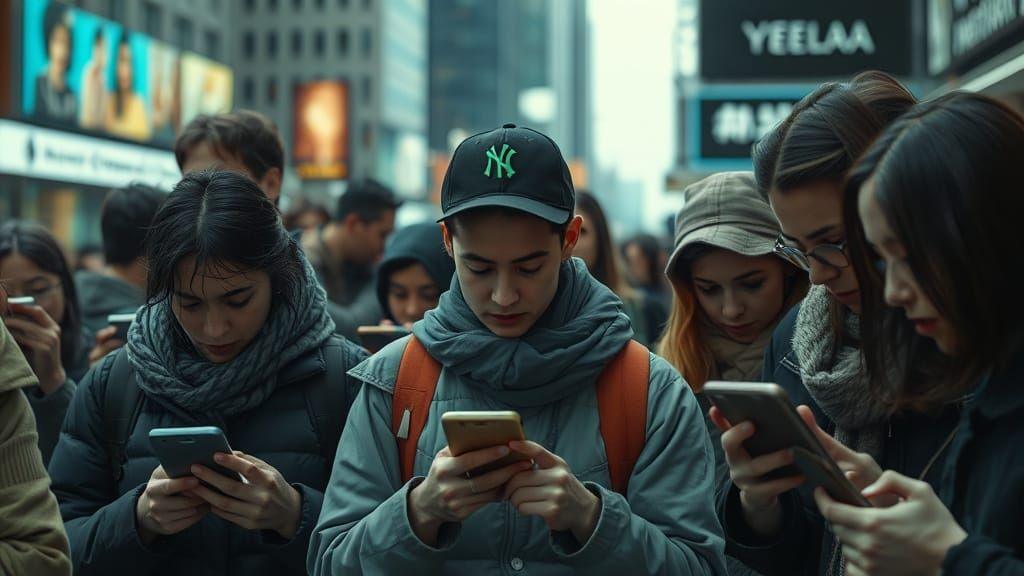Welcome to “Social Media – Harms, Protection and Recovery,” a comprehensive course designed to help you navigate the complex world of social media and its impact on mental health. As a psychiatrist, I’ve witnessed firsthand the profound effects that social media can have on our psychological well-being, and I’m here to guide you through understanding these impacts and developing strategies for healthier online engagement.
The Digital Dilemma
In today’s interconnected world, social media has become an integral part of our daily lives. It offers unprecedented opportunities for connection, information sharing, and self-expression. However, with these benefits come significant risks to our mental health and overall well-being.
Recent studies have shown alarming trends in the relationship between social media use and mental health issues. Adolescents who use social media for more than three hours daily face twice the risk of experiencing negative mental health outcomes, including symptoms of depression and anxiety. This correlation extends to adults as well, with multiple studies finding strong links between heavy social media use and increased risks of depression, anxiety, loneliness, self-harm, and even suicidal thoughts.
Understanding the Psychological Impact
The psychological impact of social media is multifaceted and complex. One of the primary mechanisms through which social media affects our mental health is through social comparison. As we scroll through carefully curated highlight reels of others’ lives, we often find ourselves feeling inadequate about our own lives and appearances. This constant comparison can lead to decreased self-esteem, negative body image, and even patterns of disordered eating.
Moreover, the design of social media platforms exploits our brain’s reward system. The unpredictable nature of likes, comments, and shares triggers the release of dopamine, a neurotransmitter associated with pleasure and reward. This creates a cycle of addiction, keeping us coming back for more even when it negatively impacts our well-being.
The Vulnerability of Youth
Young people are particularly vulnerable to the negative effects of social media. The developing adolescent brain is especially susceptible to peer influence and social validation, making teenagers more likely to engage in risky behaviours online for the sake of likes and shares. Additionally, cyberbullying has emerged as a significant concern, with many young people experiencing harassment and abuse through social media platforms.
The Need for Digital Literacy and Mental Health Awareness
As our lives become increasingly digital, it’s crucial to develop skills for navigating the online world safely and healthily. This course aims to equip you with the knowledge and tools necessary to protect your mental health in the digital age.
Course Objectives
Throughout this course, we will:
- Explore the mechanisms through which social media impacts mental health
- Identify signs of problematic social media use and potential addiction
- Develop strategies for mindful and balanced social media engagement
- Learn techniques for protecting your self-esteem and body image online
- Understand how to cultivate meaningful connections both online and offline
- Discover methods for digital detox and establishing healthy boundaries with technology
A Path to Digital Well-being
While the challenges posed by social media are significant, it’s important to remember that these platforms can also be used in ways that support mental health and well-being. Research has shown that active use of social media, such as messaging and interacting with posts, is associated with increased social support and greater feelings of social connectedness.
By approaching social media use mindfully and intentionally, we can harness its benefits while mitigating its risks. This course will guide you through practical strategies for achieving this balance, including:
- Setting time limits and taking regular breaks from social media
- Curating your feed to follow accounts that inspire and motivate you
- Practicing mindfulness to increase awareness of how social media affects your emotions
- Engaging actively rather than passively with social media content
- Utilizing built-in tools and settings to manage your online experience
The Journey Ahead
As we embark on this journey together, remember that change is a process. Be patient with yourself as you learn to navigate the digital landscape in a healthier way. The skills and insights you gain from this course will not only help you protect your mental health but also empower you to use social media as a tool for personal growth and positive connection.
Throughout the course, we’ll explore real-life examples, engage in reflective exercises, and discuss cutting-edge research on social media and mental health. By the end, you’ll have a comprehensive toolkit for maintaining your psychological well-being in the digital age.
Let’s begin this important journey towards a healthier relationship with social media and, by extension, a healthier relationship with ourselves and others in our increasingly connected world.

